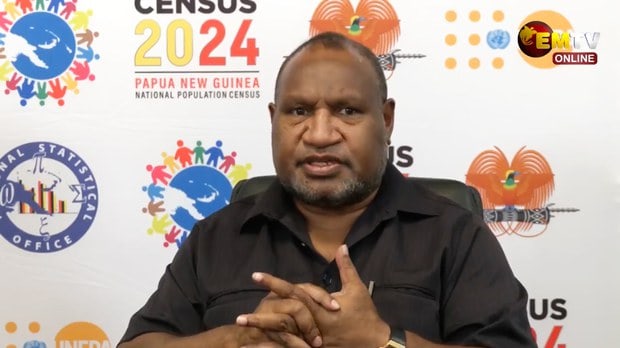Counting is underway in a highly anticipated national census in Papua New Guinea that is hoped will dispel wildly diverging population estimates ranging from 9.6 million to nearly twice the number.
Just after midnight on Monday, Papua New Guinea’s Prime Minister James Marape became the first person in the country to be recorded, as part of a broadcast to raise awareness in the Pacific’s most populous nation.
The country’s census – usually conducted every decade – was delayed for several years because of the COVID-19 pandemic. The effort must also contend with the inaccessibility of swathes of the remote highlands and island communities and risks of ethnic conflicts in some provinces.
The Pacific island country’s last reliable census was in 2000 when the population tally was 5.19 million. Researchers say the 2011 census, which produced a population figure of about 7.3 million, was botched and likely significantly undercounted the number of people.
Questions are already emerging about whether preparations this time have been adequate. The count appeared to get off to a troubled start when census enumerators demanding their allowances reportedly clashed on Sunday with security guards at city hall in Port Moresby.
Last week minister for administrative services Richard Masere said he had kept costs to K153 million (US$39.84 million), from a forecast budget of K300 million (US$78 million). The flawed 2011 census cost K150 million (US$389 million).
“You build public infrastructure around people and where people need services. So the census is very important for the country, to establish the number of people,” said Wilson Thompson, chairman of Papua New Guinea’s National Research Institute.
Papua New Guinea, because of its unreliable population data, is unable to establish basic facts such as its infant mortality rate and how much income the country has per person, which hampers efforts to lift living standards.
The problem was starkly underlined earlier this month when a landslide wiped out a village in Enga province. Uncertainty about the village’s population led to wildly different reports of the number of people killed – from dozens to thousands – and the true figure still remains unknown.
Matilda Pilacapio, an environmental activist and one of Papua New Guinea’s first elected female politicians, said she doesn’t believe the two weeks allotted to conduct the census will be sufficient.
“What is most important is that PNG has the right figures of its population so the government and donors can plan and deliver the right services to its people,” Pilacapio said.
“We are guessing our population right now,” she told BenarNews. “We need the census to be conducted thoroughly, so the government can have the right figures to plan for proper schools and hospitals and roads.”
Faith in elections also is undermined because the number of people on electoral rolls is sometimes much larger than an electorate’s enumerated population.
After the 2022 general election, the Commonwealth observer team also reported some rolls were missing up to 50 percent of eligible voters and called on the government to “urgently prioritise” the census.
Papua New Guinea’s statistics agency, on its website, currently estimates the population at 11.7 million. The National Research Institute in 2020 estimated the population at 9.4 million, according to Wilson.
Australian National University professors Bryant Allen and Mike Bourke estimated the population at between 8.8 million and 9.6 million people in mid-2020, based on projecting different plausible growth rates from the 2000 population number.
In 2022, a study conducted for the UN that combined analysis of satellite imagery and other sources estimated Papua New Guinea’s population at 17 million. Some experts, however, were skeptical the methodology could produce an accurate population figure for the country’s particular circumstances and geography.
Allen, a demography and development expert who has carried out research in Papua New Guinea since the early 1970s, told BenarNews reports on preparations for this census raise questions about whether enumerators have enough training to do the job.
National Statistician John Igitoi in a video urged everyone to take part in the count that will involve a reported 20,000 enumerators.
“If you are not going to be counted, as I always say, you will be left out of the development picture,” he said.
First data from the census is due for release in August.

One Comment “Census to give accurate population figure in PNG”
Comments are closed.